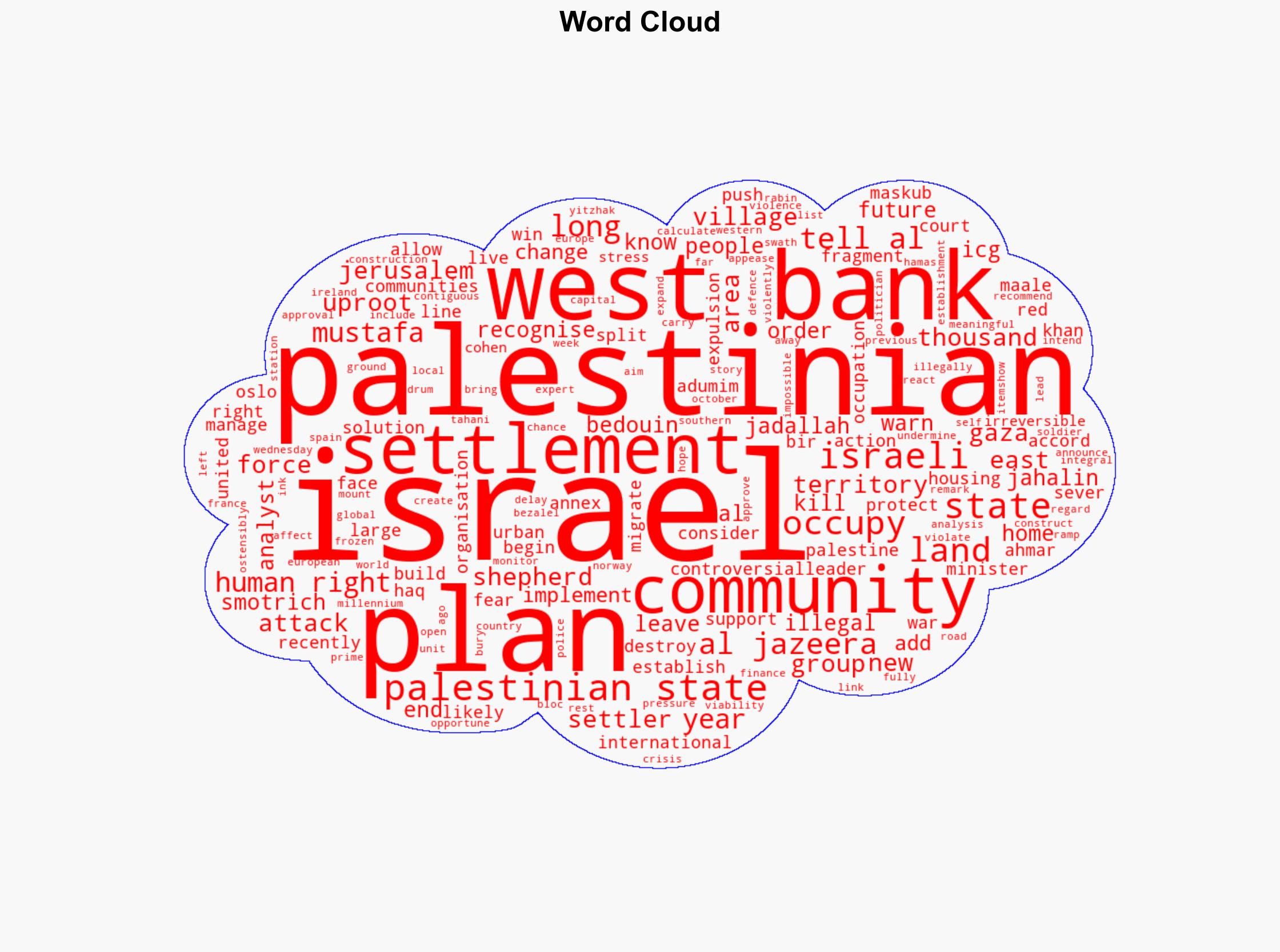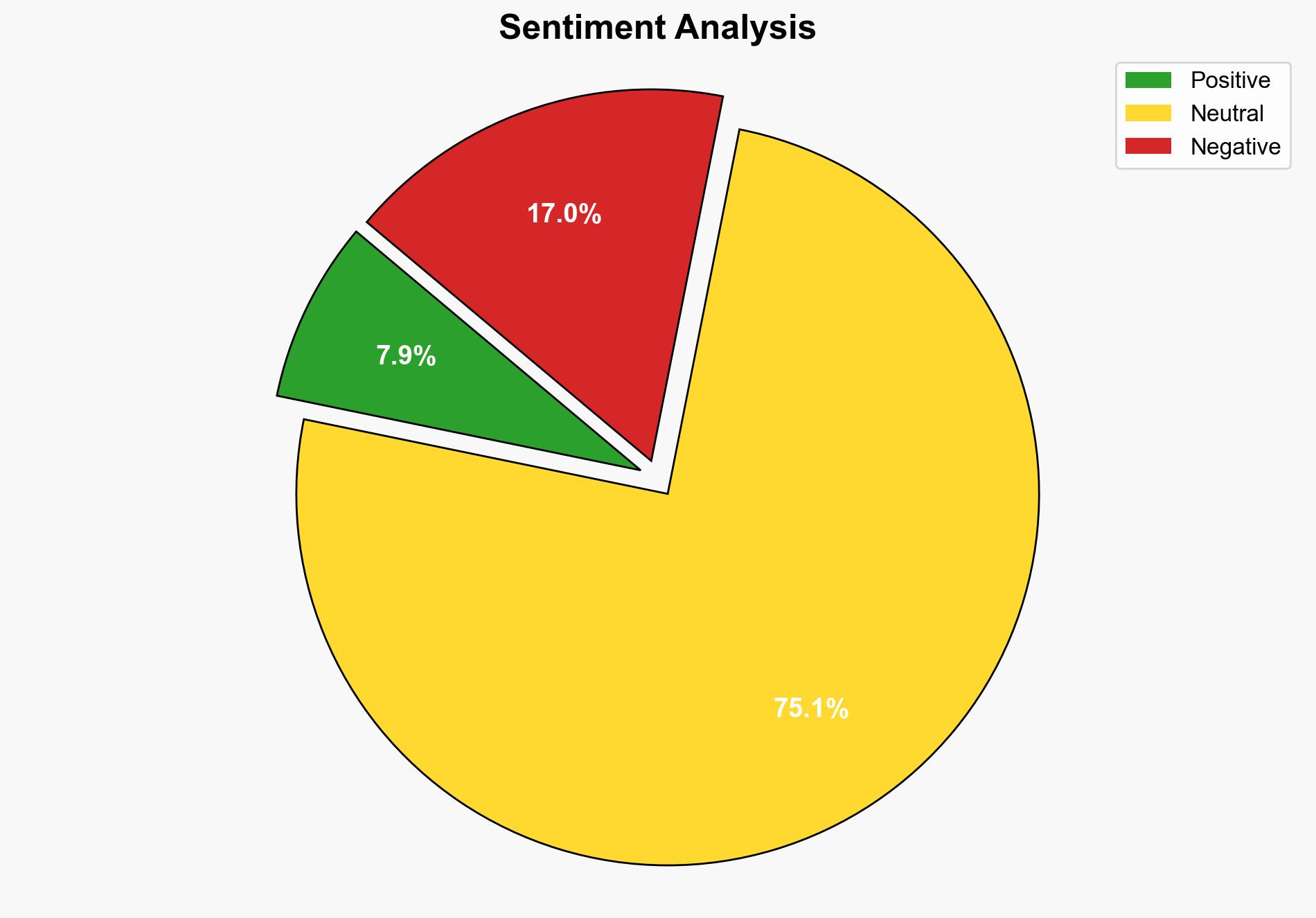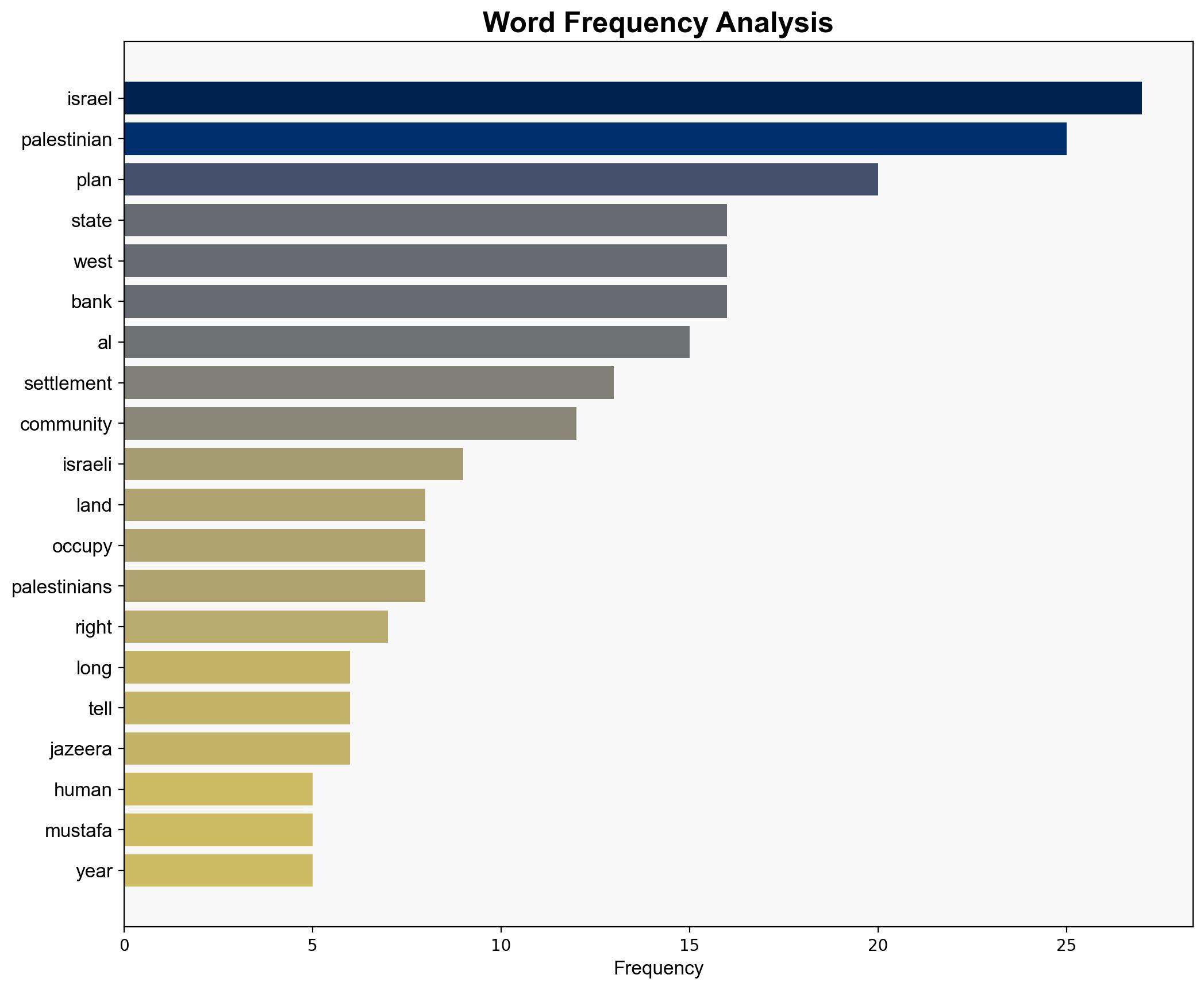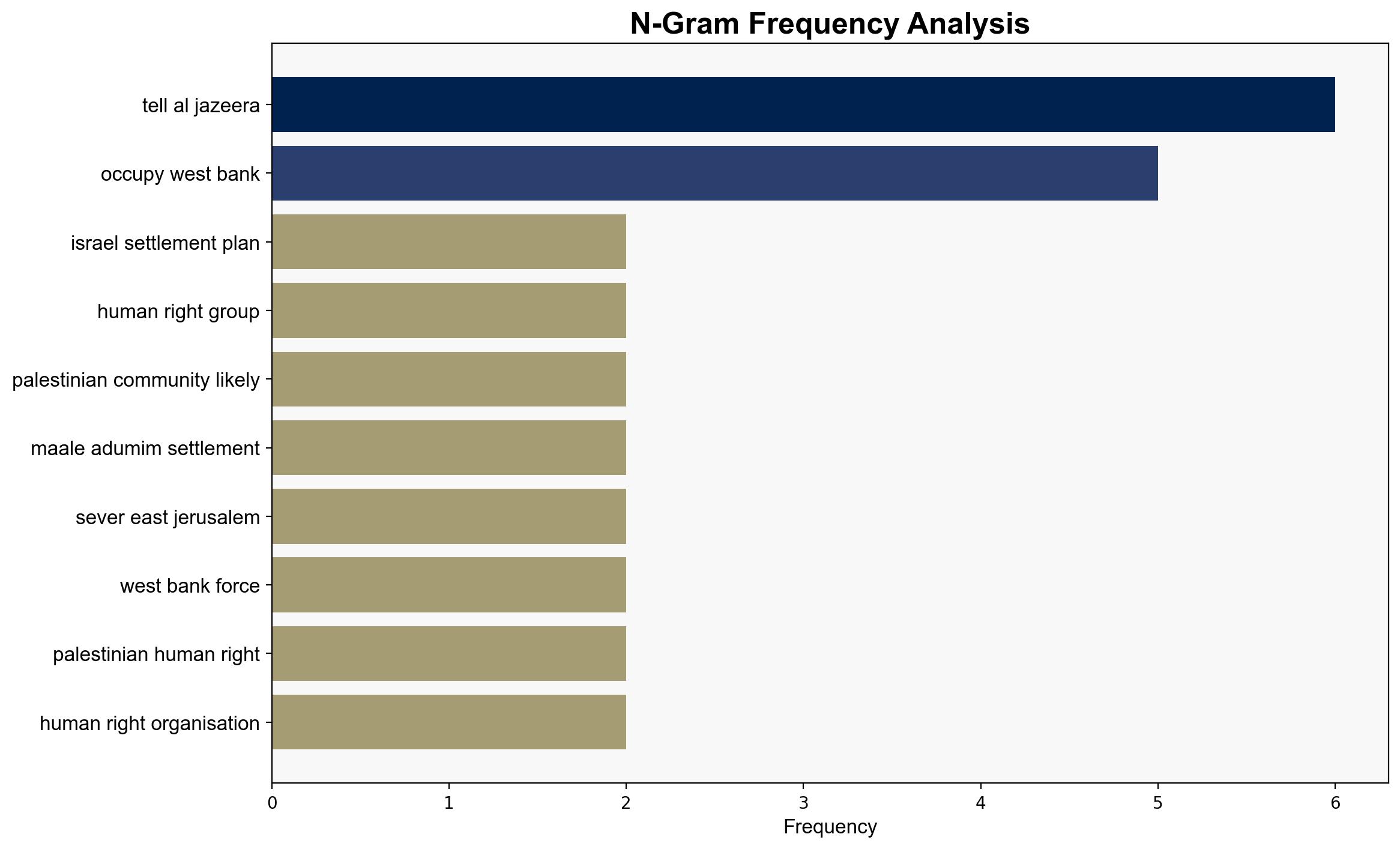Analysis Israel E1 settlement plan makes Palestinian state further away – Al Jazeera English
Published on: 2025-08-21
Intelligence Report: Analysis Israel E1 Settlement Plan Makes Palestinian State Further Away – Al Jazeera English
1. BLUF (Bottom Line Up Front)
The E1 settlement plan by Israel is likely to significantly hinder the establishment of a contiguous Palestinian state, increasing geopolitical tensions and potentially leading to further regional instability. The most supported hypothesis is that the plan is a strategic move by Israel to consolidate territorial claims, with a high confidence level. Recommended action includes diplomatic engagement and pressure from international stakeholders to mitigate potential escalations.
2. Competing Hypotheses
1. **Hypothesis A**: The E1 settlement plan is a strategic maneuver by Israel to permanently fragment Palestinian territories, thereby preventing the formation of a viable Palestinian state. This hypothesis is supported by historical patterns of settlement expansion and political statements from Israeli leaders.
2. **Hypothesis B**: The settlement plan is primarily a domestic political strategy to appease right-wing constituencies within Israel, with less emphasis on long-term geopolitical outcomes. This is supported by the timing of the announcement and internal political dynamics.
Using ACH 2.0, Hypothesis A is better supported due to consistent alignment with Israel’s historical settlement policies and international reactions indicating significant geopolitical ramifications.
3. Key Assumptions and Red Flags
– **Assumptions**: It is assumed that Israel’s actions are primarily driven by territorial ambitions rather than domestic political pressures. Another assumption is that international reactions will remain limited to diplomatic condemnations.
– **Red Flags**: Lack of detailed information on potential international responses beyond diplomatic statements. The possibility of increased violence or unrest in response to settlement expansions is not fully explored.
– **Blind Spots**: Potential shifts in U.S. policy or unexpected regional alliances that could alter the strategic landscape.
4. Implications and Strategic Risks
The settlement plan could lead to increased tensions between Israel and Palestine, potentially escalating into broader regional conflicts. Economic impacts may arise from disrupted trade and investment in the region. The plan could also trigger cyber and psychological operations as both sides seek to influence international opinion. The geopolitical landscape may shift if key international players decide to take more assertive actions.
5. Recommendations and Outlook
- Encourage multilateral diplomatic efforts to address the settlement issue and promote dialogue between Israel and Palestine.
- Monitor potential escalations in violence and prepare contingency plans for humanitarian assistance.
- Scenario-based projections:
- **Best Case**: Diplomatic interventions lead to a freeze on settlement expansions and renewed peace talks.
- **Worst Case**: Increased violence and regional instability, with international interventions proving ineffective.
- **Most Likely**: Continued settlement expansion with periodic international condemnations, leading to prolonged tensions.
6. Key Individuals and Entities
– Bezalel Smotrich
– Tahani Mustafa
– Murad Jadallah
7. Thematic Tags
national security threats, geopolitical tensions, regional focus, settlement expansion





